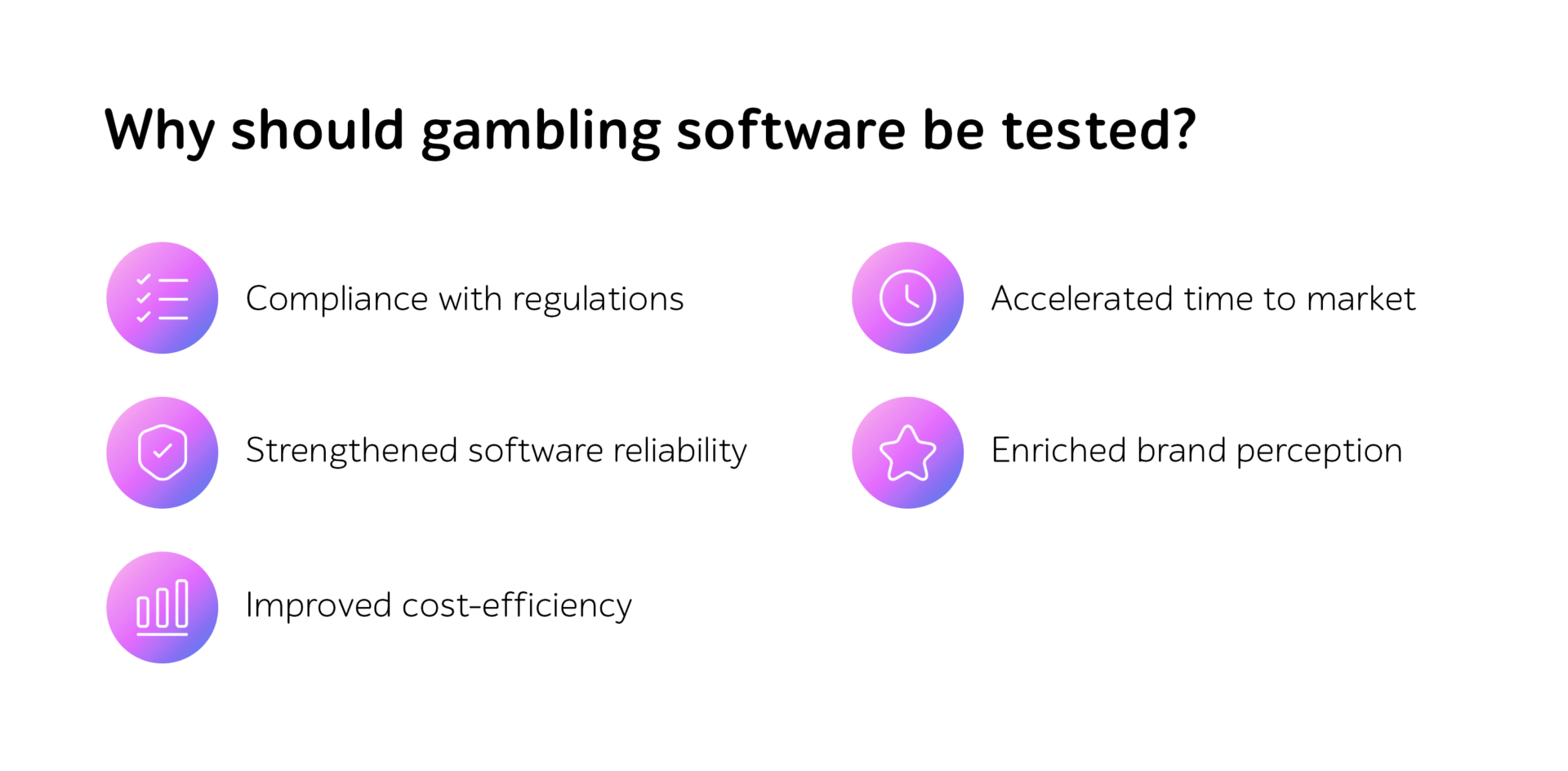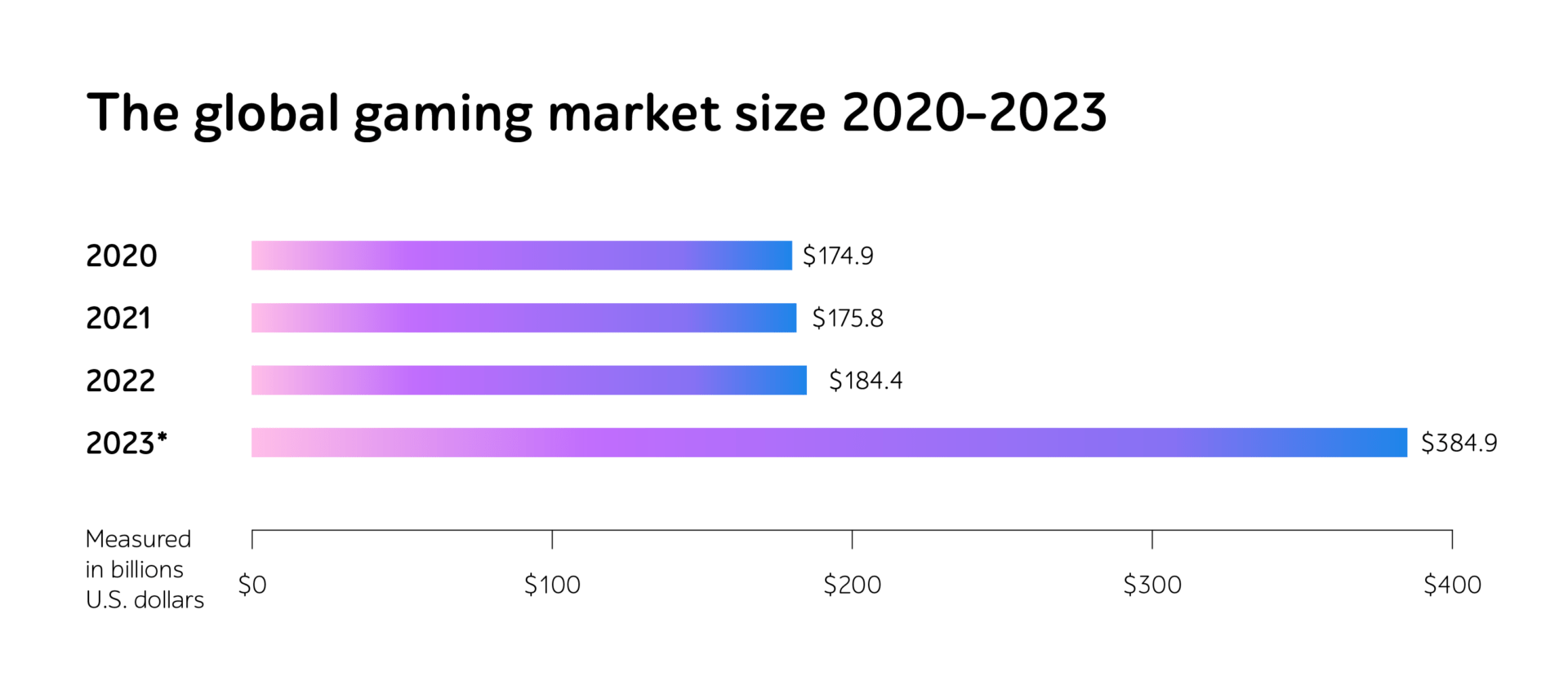In just 5 years the worldwide video game market size is expected to double and reach $600.74 billion according to the experts of Grand View Research, Inc. And it’s not surprising as modern gaming solutions offer engaging experiences that captivate users through a blend of visual sophistication, deep immersion, interactive storytelling, and well-thought-out reward systems. All of these cannot but influence user preferences, creating an emotional bond and encouraging frequent returns.
Behind these magnificent experiences lie highly intricate systems. Open-world adventures, real-time multiplayer universes, live-service models — they all require continuous updates and must operate like clockwork. Within this landscape, meticulous testing has become the need of the hour. Yet classic QA approaches often can’t keep pace with the speed and constant change.
That is where AI-powered support comes in: it spots risky code, server components, features, and gameplay loops before they cause trouble, then automates the repetitive work, tests at scale, adapts in real time, and more.
In this article, we’ll analyze the complexities of modern game testing, the growing role of AI in boosting QA efficiency, and positive outcomes of its implementation.
Analyzing the pressure of present-day game testing
Before exploring how AI is transforming modern quality control processes, it’s crucial to understand specific hurdles QA professionals encounter in today’s game development:
- Expansive content ecosystems
Modern blockbuster games like Death Stranding 2: On the Beach and the Assassin’s Creed series immerse players in expansive, highly detailed worlds. These titles often feature vast landscapes to explore, lifelike character models, sophisticated animation systems, and countless interactive elements. To ensure a smooth and cohesive experience, teams must rigorously test not just individual assets, but also how every system interacts within the larger game environment.
- Regression testing amid frequent updates
Game developers often release new content, fixes, or adjustments on a near-daily basis. Even the smallest modification can unintentionally disrupt existing features, prompting QA teams to revisit previously verified systems. For example, changing vehicle physics in one part of a racing game might unexpectedly affect AI opponents in a different mode. As the rate of updates grows, it becomes increasingly difficult to keep up with the full scope of necessary testing.
- Endless possibilities in player behavior
Today’s games offer players immense freedom — whether it’s open-world discovery, narrative choices, unpredictable mechanics, or community-created content. While this flexibility enhances the player experience, it also introduces countless paths where defects can surface, including critical issues like softlocks that trap players without crashing the game. From a QA perspective, anticipating and replicating every possible player interaction is nearly impossible without robust approaches.
- Significant costs in testing processes
Although manual testing is essential in game development, its drawbacks grow more apparent as projects become larger and more intricate. This approach demands considerable time and effort, often involving sizable teams of experienced testers who carefully execute predefined scenarios. Whenever changes occur, these test plans must be updated, repeated, and expanded to cover new requirements, adding to the overall expense and workload.
- Challenges with rare and unpredictable defects
Some issues only appear under unusual or specific conditions, making them tough to find. These scarce problems might arise after extended gameplay or from unique player actions. Even trickier are bugs that don’t occur consistently, often caused by timing or memory problems, which are hard to catch using standard testing methods.
For instance, in The Witcher 3: Wild Hunt, certain quest-critical NPCs occasionally vanished or failed to respond after extended play or specific decisions, halting progress. Similarly, in Grand Theft Auto V, some players experienced vehicles spawning beneath the map or inside structures after loading, leading to crashes or immobility.
- Toolchain burden
Modern game development relies on custom toolsets, but when slow, unstable, or poorly tested, they become a hidden liability. Inefficient toolchains can bottleneck production, introduce unpredictability, and contribute to defects in the final game experience.
- Necessity of AI validation
AI-generated content introduces new challenges around both the tools used to create it and the assets themselves. QA must evolve to validate not only functionality, but also the quality of the output and the reliability of the systems behind it.
Revolutionizing game testing with an intelligent approach
With video games becoming increasingly complex, traditional testing methods alone can no longer guarantee quality and performance. This calls for a closer look at how AI is transforming key aspects of quality assurance while boosting efficiency, scaling testing efforts, and ultimately improving player experience and market competitiveness.
- Test automation
While automated testing has long played a role in software quality assurance, modern video games introduce levels of complexity that often overwhelm traditional tools. These systems struggle with the unpredictable and dynamic nature of today’s interactive experiences. AI brings a new, more flexible layer to the process by using machine learning, visual recognition, and natural language models.
By learning from actual gameplay, user decisions, and ongoing code changes, AI can generate test scenarios without manual input, capturing a broader range of gameplay variations, including unusual edge cases. It can also assist in analyzing failed tests by pinpointing root causes faster and more accurately, reducing the time spent on debugging and issue triage. For example, by leveraging GitHub Copilot, the developer of online mobile games managed to cut the development time of an automated test by 28%, which in a nine-month span helped save 788 hours of manual testing.
Additionally, using reinforcement learning, AI-driven agents can explore game environments on their own, surfacing defects or inconsistent behavior with greater speed and precision than human testers.
On the visual side, AI models can track screen activity frame-by-frame, catching visual flaws such as misaligned UI elements, broken animations, or graphical glitches that might slip through human review.
Ensuring strong performance is essential in game development, especially for online multiplayer titles where both server efficiency and client responsiveness are key to maintaining a positive user experience.
AI now makes it possible to emulate vast numbers of players to rigorously stress-test server capacity and evaluate network stability under extreme conditions. Machine learning algorithms help distribute these virtual users in ways that closely reflect actual player behavior and traffic trends.
Furthermore, QA engineers can leverage AI systems to monitor performance data in real time and offer actionable insights, such as recommending better resource management or pinpointing areas in the codebase that need refinement. These optimizations can lead to smoother gameplay, lower latency, and the mitigation of issues like memory leaks.
Additionally, AI-driven user modeling simulates real usage patterns and predicts how performance may degrade under future workloads or code changes, enabling proactive quality assurance.
- Failure forecasting
Instead of waiting for defects to surface during testing or after launch, predictive error detection uses AI to anticipate where problems are likely to occur, enabling smarter planning and early intervention.
By analyzing patterns in historical issue reports, version control changes, and developer activity, QA specialists can leverage machine learning models to highlight code areas with a high likelihood of future issues. Factors like code churn, complexity, or frequent edits can signal instability, guiding QA teams to focus efforts where they’re needed the most.
AI can also monitor live gameplay logs and telemetry data, learning to recognize subtle warning signs such as irregular frame rate shifts or repeated input sequences that lead to failure states. When specific in-game behaviors frequently correlate with performance issues or crashes, the system can flag these trends before they escalate into major defects.
What’s more, with the help of AI QA engineers can assess the potential severity of predicted problems. By understanding how defects affect core mechanics or player experience, it helps QA and Dev teams prioritize fixes that matter the most for stability and player satisfaction.
- Decision-making process
AI can assist QA teams by evaluating and ranking defects based on factors like severity, frequency, and impact on gameplay, helping focus on the most pressing issues first. This streamlines the decision-making process and prevents important defects from slipping through the cracks.
By reviewing testing patterns and historical results, AI can also pinpoint which parts of a game have been adequately examined and which remain under-tested, helping QA engineers allocate resources more strategically.
In addition, teams can leverage AI-driven dashboards that visualize test coverage, highlight problem areas, and track progress. With natural language generation, these tools can even convert complex test data into clear, readable summaries tailored for non-technical stakeholders.
Why level up game quality assurance with AI?
Let’s analyze key benefits studios can derive from embracing AI in the quality control process:
- Accelerated testing at scale. AI takes over tedious, manual tasks, speeding up feedback loops and surfacing defects earlier in the development cycle. This enables teams to release updates faster and more often, shortening delivery timelines while maintaining high product standards.
- Expanded validation breadth. Manual and scripted testing can miss unexpected player behaviors, especially in expansive open-world or multiplayer environments. AI-driven tools overcome these limits by generating thousands of dynamic gameplay paths, uncovering edge cases and rare interactions.
- Reduced QA overhead. By shifting repetitive tasks to AI-driven test automation, teams can significantly cut down on manual effort, translating to leaner budgets and streamlined workflows. Early defect detection also prevents costly post-release fixes, ensuring a smoother launch and more efficient use of resources.
To be or not to be
AI is actively reshaping how studios approach quality assurance today. By automating repetitive tasks, expanding testing coverage, and surfacing edge-case issues early, AI is transforming QA into a driver of innovation. While it won’t replace human testers completely, it enhances their capabilities, freeing teams to focus on creativity, balance, and player experience.
Reach out to a1qa’s experts to maintain peak efficiency and quality in your game software operations.


